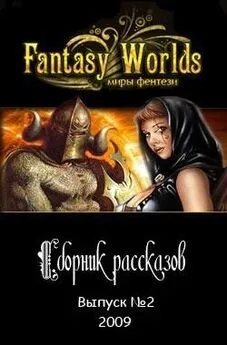Пользователь - WORLDS END
- Название:WORLDS END
- Автор:
- Жанр:
- Издательство:неизвестно
- Год:неизвестен
- ISBN:нет данных
- Рейтинг:
- Избранное:Добавить в избранное
-
Отзывы:
-
Ваша оценка:
Пользователь - WORLDS END краткое содержание
WORLDS END - читать онлайн бесплатно полную версию (весь текст целиком)
Интервал:
Закладка:
Also Lanny won the friendship of a severe and stern spirit by the name of Pierre Corneille, who had made over the French theater, and had had no easy time of it in his life. The aristocratic personages who had sprung from his brain, full panoplied in pride and owing fealty to duty alone, reminded a sensitive youth that the life of man had never been easy, and that fate appeared to have other purposes than to feed pleasure to avid lips. Since one had to die sooner or later, let it be magnificently, to the accompaniment of verses that had the sweep of an orchestra:
Je suis jeune, il est vrai; mais aux в mes bi en n й es La valeur n 'attend point le nombre des an n й es .
After Lanny had read Le Cid and Horace and Cinna, he remembered the great hours he had spent among the Isles of Greece, and that these people also could be had in friendship by the magic of the printed word. M. Priedieu had told him about Sophocles, and Lanny got a French translation of the seven plays and read them aloud to his stepfather. Together they indulged in more speculation about the Greek view of life, which had begun with the worship of sensuous beauty and ended with a confrontation of dreadful and inexplicable doom. For what had this gay and eager people been brought into being on those bright and sunny shores, to leave behind them only broken marble columns, and a few thousand melodious verses embodying proud resignation and despair?
As a result of these influences, encountered at the most impressionable age, Lanny Budd became conservative in his taste in the arts. He liked a writer to have something to say, and to say it with clarity and precision; he liked a musician to reveal his ideas in music, and not in program notes; he liked a painter to produce works that bore some resemblance to something. He disliked loud noises and confusion, and obscurity cultivated as a form of exclusiveness. All of which meant that Lanny was out-of-date before he had got fairly started in life.
II
Inspired by sublime examples, the painter gave his stepson useful advice concerning love. It was good to do with it, but also good to be able to do without it. In this, as in other affairs, one must be master of one's self. There were a thousand reasons why love might fail, and one must have resources within and be able to meet the shocks of fate. Lanny knew that Marcel spoke with authority - this lover who had had to leave his love and go to war; this worshiper of beauty who now had to speak through a veil in order that his friends might not see his ugliness. When Marcel said that Lanny too might some day hear a call that would take him away from music and art and love - the youth trembled in the depths of his soul.
Lanny talked about these problems of love and happiness with his mother also. Strict moralists might have been shocked that Beauty was willing to know about her son's too early entanglement, and to sanction it; but her course had this compensation, that when the youth was in trouble, now or later, he came to her and had the benefit of her experience.
She tried now to explain to him things that she didn't understand very well herself. No, she didn't think that Rosemary was heartless; it was evident that the girl had taken up the ideas of older women, who perhaps had suffered too much in a man's world, and had revoked from it and gone to extremes in the effort to protect themselves. Beauty told her son that kind and good people frequently had to suffer for those who were not so. Just so Kurt Meissner and other kind and good Germans might suffer for those cruel and arrogant ones who had dragged the nation into an awful calamity.
That was another problem with which Lanny wrestled frequently. Was Europe really going to be another Greece, and destroy itself by internecine wars? Would travelers some day come to Juan and to Cannes, and see the remains of lovely villas like Bienvenu and splendid palaces like Sept Chкnes, and dig in the ruins and speculate concerning the lives of those who had built them, and the hostile fate which had driven them upon a course of self-destruction?
Lanny had written several times to Kurt, through the kind agency of the Jewish salesman of electrical gadgets, now engaged in buying from the United States such devices as magnetos for automobiles and airplanes, and reshipping them to Germany. Lanny wrote Kurt about the tenderness of Racine and the stern pride of Corneille and the moral sublimity of Sophocles; and Kurt replied that his friend was fortunate in being able to devote himself to these lofty themes. He, Kurt Meissner, was now taking up practical duties, and soon would be engaged in what he considered the most important work in the world. Lanny had no difficulty in understanding that his German friend was going into the war, and didn't wish, or perhaps wouldn't be allowed, to say where or when or how.
Lanny had to think of Kurt as fighting, and he had to do the same for Rick, who had finished his final year of school and was soon to have his heart's desire. "Sophocles is fine," wrote the English youth on a post card, "but I am reading Blйriot" - that being the type of airplane the British were using. Rick didn't say where he was, but Rosemary had brought news about him, and Lanny knew that his friend was in touch with that Captain Finchley whom they had met at the review on Salisbury Plain, and was expecting to go to the camp which this officer now commanded. Lanny knew that the training was intensive and quick, for the need of the Allies for young fliers was desperate. A cousin of Rosemary's had been sent out after only some twenty hours of practice flying, and on his very first flight in France had been shot down by a German outfit. Kurt and Rick were going to fight each other; and suppose they were to meet up in the air!
Lanny took upon himself the duty of serving, at least in his own thoughts, as mediator between these two. It was obvious that when such high-minded youths disagreed so bitterly, there must be truth on both sides and a middle ground where sooner or later they would have to meet. This cruel war must come to an end, and when it did, there would be needed a friend who could speak to both of them and bring them together again.
III
No easy matter to keep that attitude, surrounded as Lanny was with persons whose hatred of Germans kept heating itself up like a furnace fire. Lanny would try to make a compromise by saying that the German rulers were wicked men, while the poor German people were deceived; but his mother said, no, they were a bloodthirsty race, they rejoiced in the infliction of suffering; you could never have got English sailors to send ships to the bottom and leave women and children to drown. Lanny saw that it was useless to argue; he went on playing the music of Mozart and Beethoven, who spoke directly to his soul. He knew they were not bloodthirsty, and neither were the people who had loved and cherished them and made them part of a national tradition.
No, there was something wrong with the world's thinking, and the young fellow's expanding mind kept trying to find out what it was. He wished very much that he might have the help of his father, whom he had not seen for two years. He was often tempted to write and ask Robbie to come to him; but he remembered the deadly submarines lurking all around France and Britain, and he would write: "I'm getting along O.K., and we'll have a lot to talk about when this is over."
Everybody was saying that it was bound to be over in a few months more. Never had wishes been father to so many thoughts. Each new offensive was going to be the final break-through; the Germans would be driven out of France, and the morale of the deceived people would crack. The German authorities kept saying the same thing, except that it was the French line that would crack, and Paris that would be taken. Both sides went on calling their young men, training them as fast as possible, and rushing them into the line; manufacturing enormous quantities of shetfs and using them in earth-shaking bombardments to prepare for infantry attacks. The battle of Ypres was opened by the British firing a hundred and ten million dollars' worth of ammunition.
The Germans had offered poison gas as their contribution to the progress of military science; and now it was the British turn to have a new idea. Early in the war an English officer had realized the impossibility of making infantry advances against machine guns, and had thought of some kind of steel fortress, heavy enough to be bulletproof, and moving on a caterpillar tread, so that it could go over shell holes and trenches. With a fleet of those to clean out machine-gun nests, it might at last be possible to restore the "war of movement."
It was nearly a year before the British officer could get anything done about his idea; and when after another year it was tried, it wasn't tried thoroughly; there weren't enough tanks and they weren't used as he had planned. All that fitted in exactly with the picture of the British War Office which Robbie had sketched for his son long before the conflict started.
Since Lanny couldn't talk about these matters with his father, he took M. Rochambeau as a substitute. This fine and sensitive old gentleman represented a nation which had maintained its freedom for four hundred years in the heart of warring Europe. It was because of the mountains, he said; and also because they were so fortunate as not to have any gold or oil. M. Rochambeau had surveyed Europe from a high watchtower; he pointed out that most of the Swiss were German-speaking, and French and Germans there had learned to live together in peace, and some day Europe must profit by their example. There would have to be a federation of states like the Swiss cantons, with a central government having power to enforce law and order. This was a vital idea, and Lanny stowed it away among others which he would need.
IV
Three years had passed since Robert Budd had forbidden Lanny to talk with his Uncle Jesse Blackless, and during that period the painter had come perhaps half a dozen times to call upon his sister. When Lanny happened to encounter him, the boy said a polite "How do you do, Uncle Jesse?" and then betook himself elsewhere. He had no reason to be particularly interested in this rather odd-looking relative, and never thought about him except when he showed up. There were so many worthwhile things in the world that Lanny did no more than wonder vaguely what might be so shocking and dangerous about his uncle's ideas.
Jesse and Marcel knew each other. Marcel didn't think much of Jesse as a painter, but they had friends in common, and both were interested in what was going on in the art world. So now when the older man came he went down to Marcel's studio and sat for a while, and Lanny went fishing or swimming.
Did Robbie's prohibition against his son's talking with Uncle Jesse include also talking about him? It was a subtle point of law, which Lanny would have asked Robbie about if it had been possible. On one occasion, after Jesse had called, the stepfather remarked: "Your uncle and your father ought to meet each other now. They could get along much better."
Lanny had to say something, so he asked: "How come?"
"They feel the same way about the war. Jesse can't see any difference at all between French and Germans."
"I don't think that's exactly true of Robbie," said the boy, hesitatingly - for he didn't like to talk about his father in this connection. He added: "I've never understood my uncle's ideas, but I know how Robbie despises them."
"It's a case of extremes meeting, I suppose," remarked the other. "Jesse is an out-and-out revolutionist. He blames all the trouble on big financiers trying to grab colonies and trade. He says they use the governments for their own purposes; they start wars when they want something, and stop them when they've got it."
Читать дальшеИнтервал:
Закладка:




![Галина Романова - Лицензия на happy end [litres]](/books/1058996/galina-romanova-licenziya-na-happy-end-litres.webp)
